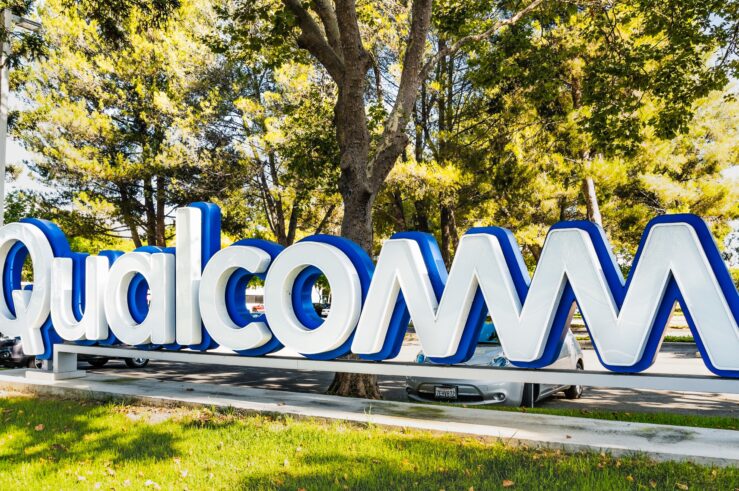Showing archive for: “DOJ”
The Ghosts of Antitrust Past: Part 1
Big Tech continues to be mired in “a very antitrust situation,” as President Trump put it in 2018. Antitrust advocates have zeroed in on Facebook, Google, Apple, and Amazon as their primary targets. These advocates justify their proposals by pointing to the trio of antitrust cases against IBM, AT&T, and Microsoft. Elizabeth Warren, in announcing ... The Ghosts of Antitrust Past: Part 1
The State AGs’ Investigation Against Google Needs to Put Consumers First
In mid-November, the 50 state attorneys general (AGs) investigating Google’s advertising practices expanded their antitrust probe to include the company’s search and Android businesses. Texas Attorney General Ken Paxton, the lead on the case, was supportive of the development, but made clear that other states would manage the investigations of search and Android separately. While ... The State AGs’ Investigation Against Google Needs to Put Consumers First
Big Ink vs. Bigger Tech
[TOTM: The following is the fifth in a series of posts by TOTM guests and authors on the politicization of antitrust. The entire series of posts is available here.] This post is authored by Ramsi Woodcock, Assistant Professor, College of Law, and Assistant Professor, Department of Management at Gatton College of Business & Economics, University ... Big Ink vs. Bigger Tech
Does Political Power Follow Economic Power?
[TOTM: The following is the third in a series of posts by TOTM guests and authors on the politicization of antitrust. The entire series of posts is available here.] This post is authored by Geoffrey A. Manne, president and founder of the International Center for Law & Economics, and Alec Stapp, Research Fellow at the ... Does Political Power Follow Economic Power?
The Politicization of Antitrust Blog Symposium
The operative text of the Sherman Antitrust Act of 1890 is a scant 100 words: Section 1: Every contract, combination in the form of trust or otherwise, or conspiracy, in restraint of trade or commerce among the several States, or with foreign nations, is declared to be illegal. Every person who shall make any contract ... The Politicization of Antitrust Blog Symposium
Private Antitrust: What Hipsters Can Learn from Hulk Hogan
Antitrust populists have a long list of complaints about competition policy, including: laws aren’t broad enough or tough enough, enforcers are lax, and judges tend to favor defendants over plaintiffs or government agencies. The populist push got a bump with the New York Times coverage of Lina Khan’s “Amazon’s Antitrust Paradox” in which she advocated ... Private Antitrust: What Hipsters Can Learn from Hulk Hogan
On the Antitrust Risks of Four to Three Mergers: A Case Study of a Potential ThyssenKrupp/Kone Merger
Today, Reuters reports that Germany-based ThyssenKrupp has received bids from three bidding groups for a majority stake in the firm’s elevator business. Finland’s Kone teamed with private equity firm CVC to bid on the company. Private equity firms Blackstone and Carlyle joined with the Canada Pension Plan Investment Board to submit a bid. A third ... On the Antitrust Risks of Four to Three Mergers: A Case Study of a Potential ThyssenKrupp/Kone Merger
The Forgotten Virtues of Doing Nothing
This guest post is by Jonathan M. Barnett, Torrey H. Webb Professor Law, University of Southern California Gould School of Law. It has become virtual received wisdom that antitrust law has been subdued by economic analysis into a state of chronic underenforcement. Following this line of thinking, many commentators applauded the Antitrust Division’s unsuccessful campaign ... The Forgotten Virtues of Doing Nothing
The District Court’s FTC v. Qualcomm Decision Rests on Impermissible Inferences and Should Be Reversed
Last week the International Center for Law & Economics (ICLE) and twelve noted law and economics scholars filed an amicus brief in the Ninth Circuit in FTC v. Qualcomm, in support of appellant (Qualcomm) and urging reversal of the district court’s decision. The brief was authored by Geoffrey A. Manne, President & founder of ICLE, and ... The District Court’s FTC v. Qualcomm Decision Rests on Impermissible Inferences and Should Be Reversed
In FTC v. Qualcomm, Judge Koh Gets Lost in the Weeds
In his latest book, Tyler Cowen calls big business an “American anti-hero”. Cowen argues that the growing animosity towards successful technology firms is to a large extent unwarranted. After all, these companies have generated tremendous prosperity and jobs. Though it is less known to the public than its Silicon Valley counterparts, Qualcomm perfectly fits the ... In FTC v. Qualcomm, Judge Koh Gets Lost in the Weeds
A Regulatory Failure of Imagination
Underpinning many policy disputes is a frequently rehearsed conflict of visions: Should we experiment with policies that are likely to lead to superior, but unknown, solutions, or should we should stick to well-worn policies, regardless of how poorly they fit current circumstances? This conflict is clearly visible in the debate over whether DOJ should continue ... A Regulatory Failure of Imagination
Why Don’t People Talk About Breaking Up Microsoft?
[This post is the seventh in an ongoing symposium on “Should We Break Up Big Tech?” that features analysis and opinion from various perspectives.] [This post is authored by Alec Stapp, Research Fellow at the International Center for Law & Economics] Should we break up Microsoft? In all the talk of breaking up “Big Tech,” ... Why Don’t People Talk About Breaking Up Microsoft?







